(Adopted by the State Duma on May 24, 1996, Adopted by the Federation Council on June 5, 1996.)
Special Part
Section VIII. Crimes in the Sphere of Economics
Chapter 22. Crimes in the Sphere of Economic Activity
Article 174. Legalization of Money (Money-laundering) or of Any Other Assets Acquired Illegally
1. The completion of financial transactions and other deals with money or any other assets acquired in an obviously illegal way, and also the use of said money for business or any other economic activity, shall be punishable by a fine in the amount of 500 to 700 minimum wages, or in the amount of the wage or salary, or any other income of the convicted person for a period of five to seven months, or by deprivation of liberty for a term of up to four years, with a fine in the amount of 100 minimum wages, or in the amount of the wage or salary, or any other income of the convicted person for a period of one month, or without any fine.
2. The same deed committed:
a) by a group of persons in a preliminary conspiracy;
b) repeatedly;
c) by a person through his official position;
Shall be punishable by deprivation of liberty for a term of four to eight years, with confiscation of property or without such confiscation.
3. The acts envisaged by the first or second part of this Article, and committed by an organized group or on a large scale, shall be punishable by deprivation of liberty for a term of seven to ten years, with confiscation of property or without such confiscation.
Article 175. Acquisition or Sale of Property, Knowingly Obtained in a Criminal Manner
1. Acquisition or sale of property, knowingly obtained in a criminal manner, shall be punishable by a fine in the amount of 50 to 100 minimum wages, or in the amount of the wage or salary, or any other income of the convicted person for a period of up to one month, or by compulsory works for a term of 180 to 240 hours, or by corrective labour for a term of one year to two years, or by deprivation of liberty for a term of up to two years.
2. The same acts committed:
a) by a group of persons in a preliminary conspiracy;
b) in relation to a car or any other property of large value;
c) by a person who was earlier tried for stealing, extortion, or acquisition or sale of property, knowingly obtained in a criminal manner, shall be punishable by restraint of liberty for a term of up to three years, or by arrest for a term of four to six years, or by deprivation of liberty for a term of up to five years, with a fine in the amount of 50 minimum wages, or in the amount of the wage or salary, or any other income of the convicted person for a period of up to one month.
3. The acts stipulated by the first or second part of this Article, and committed by an organized group or a person using his official position, shall be punishable by deprivation of liberty for a term of three to seven years, with a fine in the amount of 100 minimum wages, or in the amount of the wage or salary, or any other income of the convicted person for a period of up to one month.
Article 176. Illegal Receipt of Credits
1. The receipt by an individual businessman or an organization manager of a credit or of favorable credit terms by means of knowingly submitting to a bank or any other creditor false information about the economic position or the financial condition of the individual businessman or organization, if this act has caused large-scale damage, shall be punishable by a fine in the amount of 200 to 500 minimum wages, or in the amount of the wage or salary, or any other income of the convicted person for a period of two to five months, or arrest for a term of four to six months, or by deprivation of liberty for a term of two to five years.
2. Illegal receipt of a state special-purpose credits, and also its use not for its direct designation, if these deeds have caused large-scale damage to individuals, organizations, or the State, shall be punishable by a fine in the amount of 500 to 700 minimum wages, or in the amount of the wage or salary, or any other income of the convicted person for a period of five to seven months, or by deprivation of liberty for a term of two to five years.Article 184. Bribery of Participants and Organizers of Professional Sports and Entertainment Profit-making Competitions
1. Bribery of athletes, referees, coaches, team leaders, and other participants or organizers of professional sport competitions, and also organizers or jurymen of profit-making entertainment competitions, with the purpose of exerting influence on the results of these competitions or contests, shall be punishable by compulsory works for a term of 120 to 180 hours, or by corrective labour for a term of six to twelve months, or by arrest for a term of up to three months.
2. The same deed committed repeatedly, or by an organized group, shall be punishable by deprivation of liberty for a term of up to five years.
3. Illegal receipt by athletes of money, securities, or any other property transferred to them for the purpose of exerting influence on the results of said competitions, and also the illegal use by athletes of property-related services granted to them for the same purposes, shall be punishable by a fine in the amount of 200 to 500 minimum wages, or in the amount of the wage or salary, or any other income of the convicted person for a period of two to five months, or by disqualification to hold specified offices or to engage in specified activities for a term up to three years, or by arrest for a term of four to six months.
4. Illegal receipt of money, securities, or any other property, illegal use of property-related services by referees, coaches, team leaders, and other participants or organizers of professional sports competitions, and also by organizers or jurymen of profit-making entertainment competitions for the purposes referred to in the third part of this Article, shall be punishable by deprivation of liberty for a term of up to two years, with disqualification to hold specified offices or to engage in specified activities for a term of up to three years.Article 193. Non-return of Funds in Foreign Currency from Abroad Non-return from abroad of funds in foreign currency by the manager of an organization, required to be transferred without fail to accounts in the authorized banks of the Russian Federation in accordance with its laws, shall be punishable by deprivation of liberty for a term of up to three years.
Note: The act envisaged by this Article shall be deemed to be committed on a large scale if the sum of the non-returned funds in foreign currency exceeds 10,000 minimum wages
Chapter 23. Crimes Against the Interests of Service in Profit-making and Other Organizations
Article 201. Abuse of Authority
1. The use of authority by a person discharging managerial functions
in a profit-making or any other organization in defiance of the lawful interests of this organization and for the purpose of deriving benefits and advantages for himself or for other persons or for the purpose of inflicting harm on other persons, if this deed has involved the infliction of substantial damage on the rights and lawful interests of individuals or organizations or on the legally-protected interests of the society or the State, shall be punishable by a fine in the amount of 200 to 500 minimum wages, or in the amount of the wage or salary, or any other income of the convicted person for a period of two to five months, or by compulsory works for a term of 180 to 240 hours, or by corrective labour for a term of one to two years, or by arrest for a term of three to six months, or by deprivation of liberty for a term of up to three years.
2. The same deed, which has involved grave consequences, shall be punishable by a fine in the amount of 500 to 1,000 minimum wages, or in the amount of the wage or salary, or any other income of the convicted person for a period of five to twelve months, or by arrest for a term of four to six months, or by deprivation of liberty for a term of up to five years.
Note.
1. A person who discharges on a permanent or temporary basis or on the basis of a special power the organizational and regulatory or administrative and economic duties in a profit-making organization, regardless of its form of property, or in a non-profit-making organization that is not a state agency, or a local self-government body, a governmental municipal institution, is regarded by the Articles of this Chapter as a person discharging managerial functions in a profit-making or any other organization.
2. If a deed stipulated by this Article or by other Articles of this Chapter has caused harm to the interests of an exclusively profit-making organization that is not a governmental or municipal enterprise, then prosecution shall be instituted upon the application of this organization, or with its consent.
3. If a deed envisaged by this Article or by other Articles of this Chapter has caused harm to the interests of other organizations, or to the interests of individuals, society, or the State, then prosecution shall be instituted on general grounds.
Article 202. Abuse of Authority by Private Notaries and Auditors
1. The use by a private notary or a private auditor of his authority, contrary to his duty and for the purpose of deriving benefits and advantages for himself or for other persons, or of inflicting harm on other persons, if this deed has caused substantial damage to the rights and lawful interests of individuals or organizations or to the legally-protected interests of society and the State, shall be punishable by a fine in the amount of 500 to 800 minimum wages, or in the amount of the wage or salary, or any other income of the convicted person for a period of five to eight months, or by arrest for a term of three to six months, or by deprivation of liberty for a term of up to three years, with disqualification to hold specified offices or to engage in specified activities for a term of up to three years.
2. The same act, committed in respect of an obvious minor or a legally incapable person, or commited repeatedly, shall be punishable by a fine in the amount of 700 to 1,000 minimum wages, or in the amount of the wage or salary, or any other income of the convicted person for a period of seven to twelve months, or by arrest for a four to six months, or by deprivation of liberty for a term of up to five years, with disqualification to hold specified offices or to engage in specified activities for a term of up to three years.
Article 203. Exceeding of Authority by Staff Members of Security of Detective Services
1. The exceeding of his licensed authority by a manager or an officer of a security or detective service, in defiance of his duty , if this deed has been committed with the use of violence or with the threat of its application, shall be punishable by restraint of liberty for a term of up to three years, or by arrest for a term of six months, or by deprivation of liberty for a term of up to five years, with disqualification to hold specified offices or to engage in specified activities for a term of up to three years, or without such disqualification.
2. The same act, which has involved grave consequences, shall be punishable by deprivation of liberty for a term of four to eight years, with disqualification to hold specified offices or to engage in specified activities for a term of up to three years.
Article 204. Bribery in a Profit-making Organization
1. The illegal transfer of money, securities, or any other assets to a person who discharges the managerial functions in a profit-making or any other organization, and likewise the unlawful rendering of property-related services to him for the commission of actions (inaction) in the interests of the giver, in connection with the official position held by this person, shall be punishable by a fine in the amount of 200 to 500 minimum wages, or in the amount of the wage or salary, or any other income of the convicted person for a period of two to five months, or by disqualification to hold specified offices or to engage in specified activities for a term of up to two years, or by restraint of liberty for a term of up to two years, or by deprivation of liberty for a term of up to two years.
2. The same acts, committed repeatedly by a group of persons in a preliminary conspiracy, or by an organized group, shall be punishable by a fine in the amount of 500 to 800 minimum wages, or in the amount of the wage or salary, or any other income of the convicted person for a period of five to eight months, or by restraint of liberty for a term of up to three years, or by arrest for a term of three to six months, or by deprivation of liberty for a term of up to four years.
3. The illegal receipt of money, securities, or any other assets by a person who discharges the managerial functions in a profit-making or any other organization, and likewise the illegal use of property-related services for the commission of actions (inaction) in the interests of the giver, in connection with the official position held by this person, shall be punishable by afine in the amount of 500 to 800 minimum wages,
or in the amount of the wage or salary, or any other income of the convicted person for a period of five to eight months, or by disqualification to hold specified offices or to engage in specified activities for a term of up to two years, or by restraint of liberty for a term of up to three years, or by deprivation of liberty for a term of up to three years.
4. Acts provided for by the third part of this Article, if they are:
a) committed by a group of persons in a preliminary conspiracy, or by an organized group;
b) committed repeatedly;
c) attended by extortion shall be punishable by a fine in the amount of 700 to 1,000 minimum wages, or in the amount of the wage or salary, or any other income of the convicted person for a period of seven to twelve months, or by disqualification to hold specified offices or to engage in specified activities for a term of up to five years, or by deprivation of liberty for a term of up to five years.
Note: A person who has committed acts stipulated in the first or second part of this Article, shall be relieved from criminal responsibility, if he has been subject to extortion or if this person has voluntarily informed the body that has the right to institute proceedings in a criminal case about bribery.



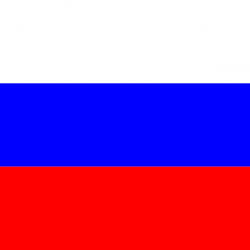
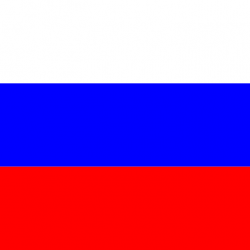
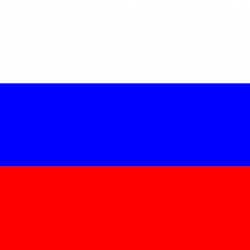
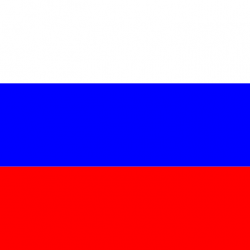
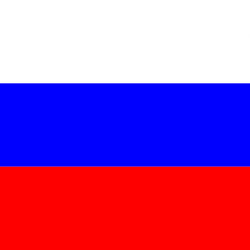
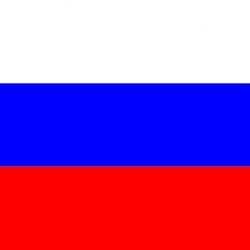
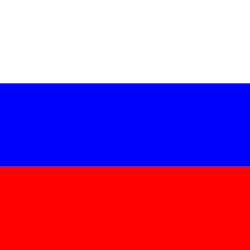
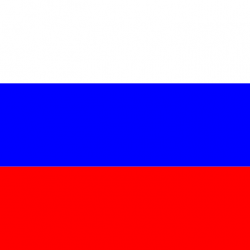
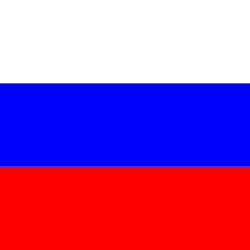
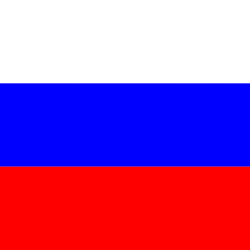
 We will not leak your personal information
We will not leak your personal information